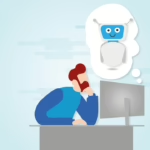The Role of Online Communities in Education: Lessons from Physics Wallah
In recent years, the landscape of education has undergone a significant transformation due to the advent of technology and the establishment of online communities. Particularly, educational platforms such as Physics Wallah have emerged as powerful case studies in understanding the role of online communities in enhancing learning experiences. This article explores the pivotal role these online communities play in education, illustrated through the successes and methodologies of Physics Wallah.
Understanding Online Communities in Education
Online communities refer to virtual spaces where individuals gather to share knowledge, ideas, and experiences. In education, these communities can range from forums and social media groups to comprehensive online learning platforms. The benefits of such communities include accessibility, increased motivation, collaborative learning, and peer support.
1. Accessibility and Inclusivity
One of the most significant advantages of online communities is their ability to break geographical barriers and democratize education. Students from different backgrounds and regions can access quality content, which is especially important in countries with vast educational disparities. For instance, Physics Wallah has made physics and mathematics accessible to thousands of students across India, many of whom come from underprivileged backgrounds. By providing free or low-cost resources, such communities can foster a more inclusive educational environment.
2. Enhanced Learning Experience through Peer Support
Online communities provide a platform for peer interaction, which can ultimately enhance the learning experience. Students can discuss concepts, clarify doubts, and share resources. This collective effort often leads to better retention of information and deeper understanding. In the case of Physics Wallah, students frequently engage in discussions on social media platforms where they can ask questions and help each other with challenging problems.
3. Motivation and Accountability
Participating in an online community can significantly enhance a student’s motivation to learn. The sense of belonging and accountability to peers can drive individuals to stay committed to their educational goals. Through shared experiences and support, students often find greater motivation to pursue their studies. Physics Wallah operates on this principle by creating a community where learners continuously motivate each other through forums, webinars, and live sessions.
Lessons from Physics Wallah
Physics Wallah, founded by Alakh Pandey, has become a prominent educational platform in India, particularly known for its engaging video lectures in physics and mathematics. The case of Physics Wallah provides useful insights into the efficacy of online communities in education.
1. Content Quality and Engagement
At the core of Physics Wallah’s success is the quality of its content. Alakh Pandey’s engaging teaching style has made complex topics more accessible. The platform features a vast array of resources, including video lectures, problem sets, and interactive quizzes. This commitment to high-quality educational content draws in students and fosters an engaged online community.
2. Building a Strong Brand Community
Physics Wallah has leveraged social media to create a strong community around its brand. By utilizing platforms such as YouTube, Instagram, and Telegram, the brand has effectively engaged with students, responding to their queries and fostering a sense of community. This connection between the educators and students reinforces the learning process, as students feel valued and heard.
3. Providing Comprehensive Support
Beyond just delivering lectures, Physics Wallah offers support in various forms, such as doubt-clearing sessions and mentorship. This comprehensive support system is crucial as it ensures that students have access to help when needed, thereby reducing frustration and enhancing their learning experience. The online community complements this by allowing students to assist each other, further strengthening the support network.
4. Feedback Mechanism for Continuous Improvement
Online communities also serve as feedback channels for educators to improve their content and teaching methods. Physics Wallah incorporates feedback from its community to refine its approach continually. This iterative process allows educators to tailor their methods to meet the needs of their students effectively, creating a more dynamic and responsive educational environment.
The Role of Technology in Online Learning Communities
The technology that facilitates online learning communities is an essential component of their success. Various tools and platforms support communication, content delivery, and assessments, all of which contribute to enriching the educational experience.
1. Learning Management Systems (LMS)
Learning Management Systems are integral to offering structured courses and resources. Platforms like Physics Wallah utilize LMS to organize their content, assign assessments, and track students’ progress. This organization allows for a systematic approach to learning, where students can easily navigate through materials according to their learning pace.
2. Collaboration Tools
Collaboration tools, such as forums and chat applications, enhance interaction among students. Physics Wallah has effectively used platforms like Telegram for real-time communication, allowing students to engage in discussions, share resources, and seek support quickly. These tools eliminate the feeling of isolation often associated with online learning, fostering a sense of community.
3. Interactive Learning Experiences
Interactive features, such as quizzes, polls, and gamified learning modules, create dynamic learning environments. Physics Wallah incorporates quizzes that allow students to test their knowledge after each lesson, reinforcing learning and providing immediate feedback. This interactivity keeps students engaged and enhances retention.
The Challenges of Online Learning Communities
While online learning communities offer numerous benefits, they are not without challenges. Understanding these challenges is essential for further improving the educational landscape.
1. Digital Divide
Despite the growth of online educational communities, the digital divide remains a significant barrier. Many students, particularly in rural areas, lack access to reliable internet and technology. This disparity can limit their participation in online communities. Physics Wallah has recognized this issue and strives to create content that can be accessed offline, but this remains a challenge for many in the broader educational context.
2. Information Overload
The vast amount of information available online can be overwhelming for students. With numerous resources and discussions occurring simultaneously, students may struggle to filter out relevant content. Physics Wallah addresses this challenge by curating structured content, helping learners navigate their educational journeys effectively.
3. Maintaining Motivation
While online communities can foster motivation, they can also lead to a sense of disconnect. Students may not engage with peers as effectively as in a traditional classroom setting, leading to a lack of motivation. Physics Wallah combats this by conducting live sessions and regular interactions, ensuring that students feel connected and motivated to continue their studies.
Looking Ahead: The Future of Online Communities in Education
As the educational landscape continues to evolve, the role of online communities will become increasingly significant. Several emerging trends can be observed that may shape the future of education.
1. Gamification and Adaptive Learning
The integration of gamification and adaptive learning is expected to play a crucial role in online education. By creating engaging and personalized learning experiences, students can benefit from tailored content that meets their individual needs. Platforms like Physics Wallah could incorporate these trends to enhance user engagement further.
2. Hybrid Learning Models
The future may see a blending of traditional and online education, where classrooms incorporate online communities as integral parts of the learning experience. This hybrid model can provide the best of both worlds, combining the benefits of in-person interactions with the accessibility of online communities.
3. Data-Driven Personalization
With advancements in data analytics, online communities will likely leverage data to provide personalized learning experiences. Analyzing student performance metrics can help educators tailor content and support to meet individual learning needs. Physics Wallah already utilizes feedback mechanisms, and expanding this with data-driven analytics would enhance effectiveness.
4. Global Learning Communities
Online communities allow for international collaboration, exposing students to diverse perspectives and learning methods. As platforms continue to expand, we can expect to see more global learning communities emerge, enriching the educational experience by connecting learners worldwide.
Conclusion
Online communities play a transformative role in the educational landscape, offering numerous benefits that enhance learning experiences. The lessons from Physics Wallah illustrate the potential of these communities to provide accessible, engaging, and supportive environments for learners. As technology continues to evolve, the future of education will increasingly rely on the collaborative and interactive nature of online communities, paving the way for a more inclusive and effective learning experience for all.
Footnotes
- Physics Wallah Official Website. Physics Wallah.
- Pandey, Alakh. Personal Interviews and Discussions. Educational Insights on Online Learning.
- Jones, M. (2022). The role of social media in educational communities. Journal of Online Learning, 23(3), 45-59.
- Kumar, R. (2021). Access to Education: Barriers and Solutions. Indian Journal of Educational Studies, 12(4), 215-229.
- Smith, L. (2020). Gamification in Education: Revolutionary or Just a Fad? Modern Educators Journal, 15(2), 34-51.


























Add Comment